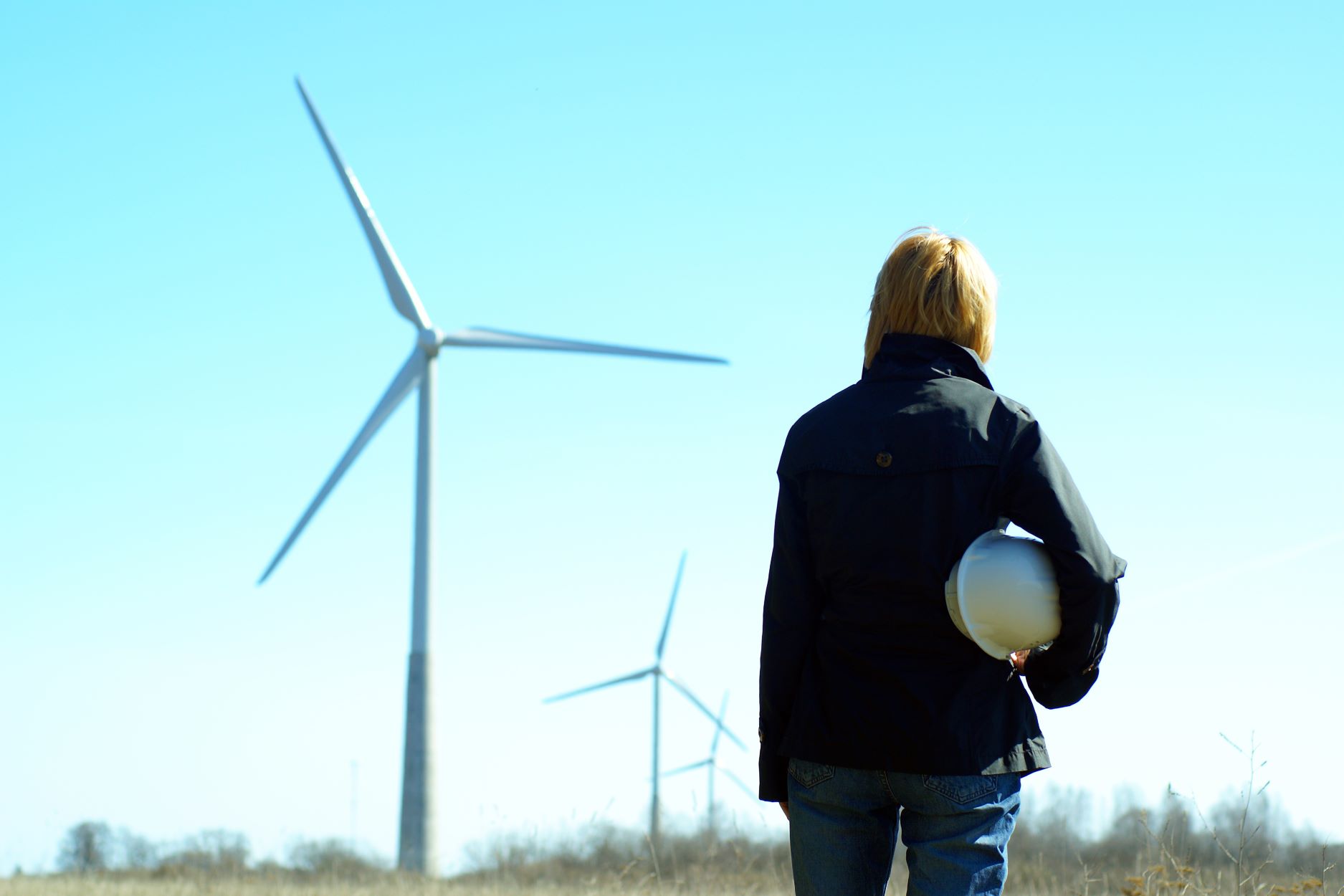 The Johnson Government is in the process of rebranding its policy on net-zero as a quest for energy independence from Putin’s Russia, writes Derrick Wyatt, which may lead to a short-term emphasis on domestic oil and gas production, but increased focus on nuclear and renewables. This will all be consistent with the Paris Agreement on Climate Change, which is a key commitment in the UK’s trade deal with the EU. Nigel Farage’s call for a referendum on net-zero by 2050 is likely to fall by the wayside.
The Johnson Government is in the process of rebranding its policy on net-zero as a quest for energy independence from Putin’s Russia, writes Derrick Wyatt, which may lead to a short-term emphasis on domestic oil and gas production, but increased focus on nuclear and renewables. This will all be consistent with the Paris Agreement on Climate Change, which is a key commitment in the UK’s trade deal with the EU. Nigel Farage’s call for a referendum on net-zero by 2050 is likely to fall by the wayside.
Nigel Farage has launched a campaign for a referendum on the government’s plans to achieve net-zero by 2050. According to Farage, green subsidies are an excessive burden on energy users, and benefit rich landowners and foreign conglomerates. He may have been inspired by a Swiss referendum last year, which rejected measures designed to help achieve the Swiss government’s net-zero target.
Others are petitioning Parliament for a referendum on whether to keep the net-zero 2050 target. The government has responded that ‘national referendums are a mechanism to endorse major constitutional change; debates about national policy are best determined through Parliamentary democracy and the holding of elections’.
Farage’s call for a referendum offers a confusing debate. Plans for net-zero include policies which many net-zero objectors might approve of. Policies designed to achieve net-zero are also policies to promote energy independence from discredited foreign suppliers like Putin’s Russia, or Saudi Arabia for that matter. Such dual-purpose policies include support for nuclear energy and renewables, as well as for home insulation and even heat pumps.
Another complicating factor for net-zero objectors is that some renewable sources of energy have become cheaper than fossil fuels. In 2020, the government forecast that onshore wind and solar power would be half as costly as gas in 2025, but already by mid-2021 new onshore wind power was costing less than half that from existing gas plants. Major drivers of innovation and reduced costs have been the United Nations Framework Convention on Climate Change and the Paris Agreement on Climate Change and the political decisions and regulation to which they have given rise.
All this has put green energy in the forefront of the government’s efforts to boost UK-sourced energy, as well as speeding the transition to net-zero. This amounts to rebranding climate change policy as energy independence policy. For the UK, an obvious route to energy independence is via increased investment in nuclear, wind and solar power, and this seems to be the government’s plan.
It is true that solar and wind power need alternative energy generation as backup to cover dull and windless days, pending availability of more electricity storage capacity. Nuclear power has potential in hybrid nuclear/renewables systems, using intermittent input from standard reactors, or modular units. The government has already invested in a Rolls Royce venture to produce small modular nuclear reactors. Energy storage technology to support renewables is developing quickly, for example by way of factory scale lithium-ion battery storage or technology beyond lithium-ion of various kinds. Wholly new methods of electricity storage promise increased efficiencies and cost savings.
If there were a referendum, a vote against net-zero would not guarantee that a future UK government would abandon development of renewables as a means of securing energy independence from foreign-sourced fossil fuels. Nor would it guarantee that a future government would pursue particular policies that might be favoured by net-zero objectors, such as the development of domestic shale gas production.
There are two problems with restarting shale gas production. One is that it would be unlikely to reduce the price of energy in the UK. Another is that shale gas production produces earthquakes. The enthusiasm of net-zero objectors for domestic shale gas production may not be shared by the public at large, and opinion polls have shown little support for fracking. That said, some shale gas production might be feasible in the UK, and a government committed to net-zero would not be bound to rule shale gas out as a transitional fuel en route to the decarbonization of UK energy supplies.
The quest for energy independence could offer the government a pretext for being more flexible about transitional recourse to fossil fuels than would the case if global warming were the only consideration. Boris Johnson has certainly been reported as referring to ‘a transition with more hydrocarbons‘. This might be seen by some as a chance to mitigate some of the costs of net-zero and reassure those in Conservative ranks who are uneasy about those costs, including the Chancellor Rishi Sunak.
But none of this need prejudice the UK’s obligations under the Paris Agreement, and its commitments to comply with that Agreement under the UK/EU Trade and Cooperation Agreement (TCA). Under the TCA, the UK commits to ‘effectively implementing’ the Paris Agreement, and to refrain from conduct that would ‘defeat the object and purpose’ of that Agreement. If the UK withdrew from the Paris Agreement, this would be a breach of the TCA, and the same would be the case if the UK remained a party to the Paris Agreement but renounced its policy of achieving net-zero. In either case, the EU could terminate or suspend the TCA in whole or in part.
The Paris Agreement has two temperature targets for limiting global warming. One is ‘holding the increase in the global average temperature to well below 2°C above pre-industrial levels’. The other is ‘pursuing efforts to limit the temperature increase to 1.5°C’ above those levels. ‘Net-zero’ greenhouse gas emissions is designed to put the brakes on global warming, while net-zero by 2050 is considered necessary to achieve the goal of 1.5°C above pre-industrial levels.
So, the Paris Agreement does not in itself oblige the UK to achieve net-zero by 2050, and it allows national governments considerable leeway to design their own commitments to achieve net-zero. The UK would not be an outlier if it slowed transition from some fossil fuels in the name of energy independence, in the aftermath of Putin’s invasion of Ukraine. Germany, for example, is considering slowing its transition from coal. To put this in a broader context, China will in any event be ‘phasing down’ coal until 2060, and India plans to burn coal until 2070.
Whatever the constitutional or political arguments against a referendum on net-zero, one poll last year showed 42% of adults supported such a referendum, rising to 58% if ‘don’t knows’ were excluded. But opinion seems unsettled. Another poll, at about the same time, showed that a majority favoured moving to net zero without a referendum.
A further poll showed majority support for a number of net-zero policies, but that those majorities disappeared when people were made aware of the lifestyle changes required – such as being unable to buy a gas boiler. The public may support net-zero, as long as the government will cushion them and their families from the personal costs and inconvenience involved. That is not a completely unreasonable position to take. Intergenerational equity is for today’s citizens, as well as tomorrow’s.
The government’s blending of its climate change policy with its policy on energy independence is likely to appeal to a broader base than its climate-change policy alone. And that would reduce the appeal of Nigel Farage’s call for a referendum on net-zero.
_______________________
 Derrick Wyatt, QC is Emeritus Professor of Law, University of Oxford, and former barrister specialising in litigation before the EU Courts. He has advised government bodies and businesses on legal issues relating to the environment and climate change. He is a Member of the International Academic Council of Fundacion Fide, an independent and non-partisan Spanish think-tank.
Derrick Wyatt, QC is Emeritus Professor of Law, University of Oxford, and former barrister specialising in litigation before the EU Courts. He has advised government bodies and businesses on legal issues relating to the environment and climate change. He is a Member of the International Academic Council of Fundacion Fide, an independent and non-partisan Spanish think-tank.
Photo by Scott Rodgerson on Unsplash.







